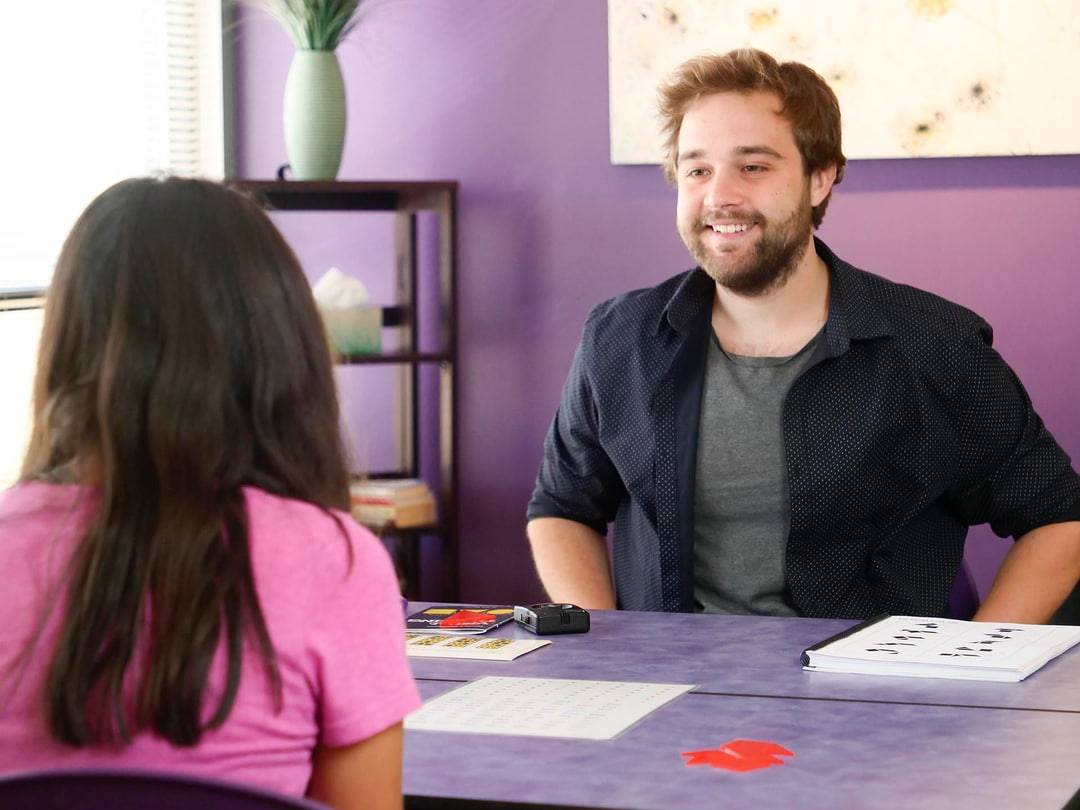Cognitive Testing in Eden Prairie
At LearningRx, our brain training plans start with cognitive testing. Before you or your child get started with brain training, we’ll conduct a Brain Skills Assessment. This way, we can identify which cognitive skills are already strong, and which skills can benefit from training. We can then develop an individualized learning plan based on these results.
The Brain Skills Assessment does more than just help us create an individualized learning plan for you or your child. It also offers answers about how your brain or your child’s brain works!
Our cognitive assessment will show you which skills are already thriving and which skills have room for improvement. This can answer why you or your child performs so well on certain activities, yet struggles with other types of tasks or assignments. We can then target and strengthen these skills through an individualized brain training plan.
By training the brain skills identified in the Brain Skills Assessment, we can help you or your child learn more easily, think more quickly, and unlock hidden potential!
Watch Pete explain how his daughter’s Brain Skills Assessment uncovered the root cause of her learning struggles:
About Our Cognitive Testing
How the Assessment Works
Before getting started with brain training, we invite you to schedule a Brain Skills Assessment at your local LearningRx Brain Training Center. Cognitive testing is led by a brain training director and takes approximately one hour to complete.
During the Brain Skills Assessment, you or your child will complete a series of activities which measure cognitive skills. Each activity is designed to test a specific skill or set of skills. This way, we can measure the brain’s core learning and thinking skills independent of one another. This also helps us identify the root cause of any learning or thinking struggles that you or your child may be experiencing before you start brain training.
Our cognitive testing allows us to map each learner’s unique cognitive profile. It also allows us to identify which cognitive skills have the most room for improvement and can be targeted through brain training. Based on this information, we create an individualized training plan for you or your child.
After brain training, we will conduct a second cognitive assessment. By comparing results, we can see the areas where brain training has improved cognitive skills, and how significant these gains are!
What the Assessment Measures
Our Brain Skills Assessment measures individual cognitive skills, as well as overall cognitive performance.
The skills measured by our cognitive assessment include:
- Attention – How well the brain concentrates on activities and tasks.
- Processing Speed – How quickly the brain processes new information.
- Working Memory – How well the brain retains short-term information.
- Long-Term Memory – How easily the brain retains important long-term information.
- Auditory Processing – How well the brain processes, analyzes, and imagines sounds.
- Visual Processing – How well the brain processes, analyzes, and imagines images.
- Logic & Reasoning – How well the brain reasons, forms ideas, and solves problems.
Together, these skills allow our brains to acquire new information, accomplish basic tasks, solve complex problems, and process the world around us.
In other words, these seven skills represent the building blocks of how we learn and think! By measuring these skills, we can form a complete cognitive profile of you or your child.
How to Understand the Results
After the Brain Skills Assessment, we will schedule a one-on-one consultation to walk you through the cognitive test results for you or your child.
Below is a quick explanation of how to interpret our cognitive testing scores:
Age-Equivalent Scores
These scores measure how well you or your child performed compared to average scores for different age groups. For example, a score of 12.1 years would represent a skill that’s performing at approximately a 7th grade level. Note that we do only include age-equivalent scores for learners under the age of 18.
Standard Scores
These scores indicate how far above or below average a learner performs compared to a common scale. For example, the common scale for IQ is 100 points. A learner with an IQ score of 87 would have a score 13 points below average. A learner with an IQ score of 121 would have a score 21 points above average.
Percentile Scores
These scores measure how you or your child performed compared to other learners in the same age group. A percentile score tells you what percentage of the general population the test-taker out-performed. For example, a 5th grade student in the 84th percentile would have a higher score than 84% of all other 5th grade students.
When we perform a second cognitive assessment after brain training, we will include changes in these scores. That means you can see the skill-by-skill impact that brain training has had on you or your child!
Schedule a Cognitive Assessment
Ready to get started with LearningRx brain training? Curious about how your mind works or why your child is having learning difficulties? Simply contact your local Brain Training Center to request cognitive testing!
Our Brain Skills Assessment is performed for a flat, one-time fee. There is no obligation to proceed with brain training after testing.
Want to learn more before booking your cognitive assessment? In that case, we suggest our free online brain quiz! The brain quiz takes less than five minutes to complete and will provide early answers about your or your child’s cognitive profile!
Find answers to how the brain works with cognitive testing! Contact LearningRx today to request a Brain Skills Assessment for you or your child.








